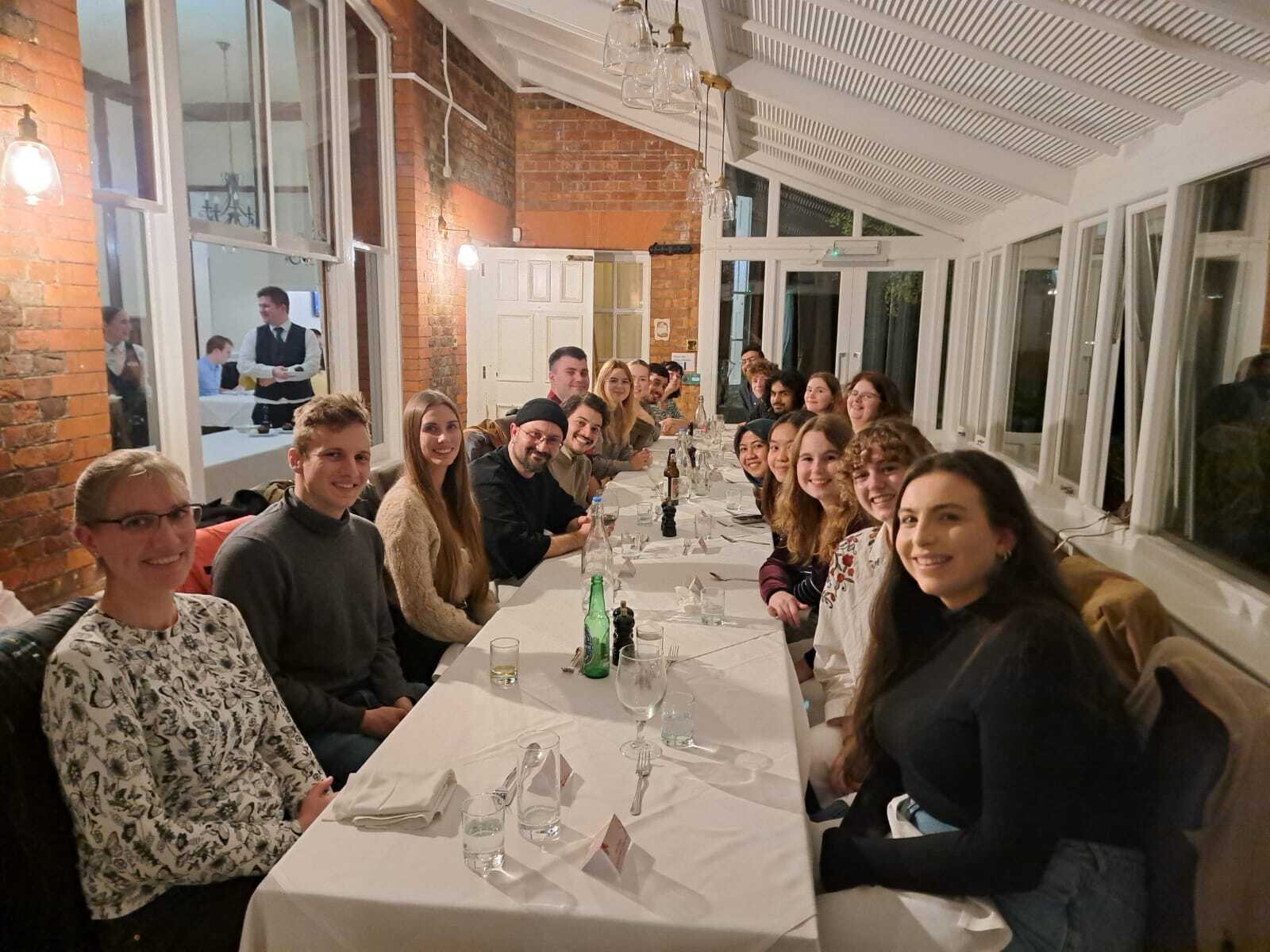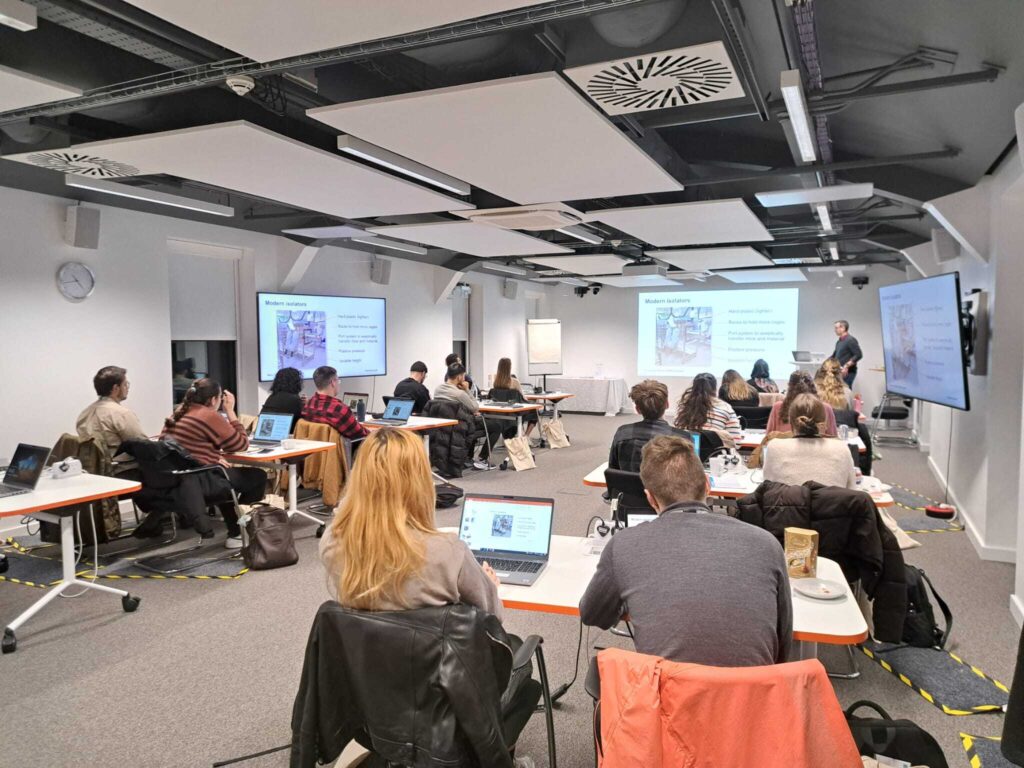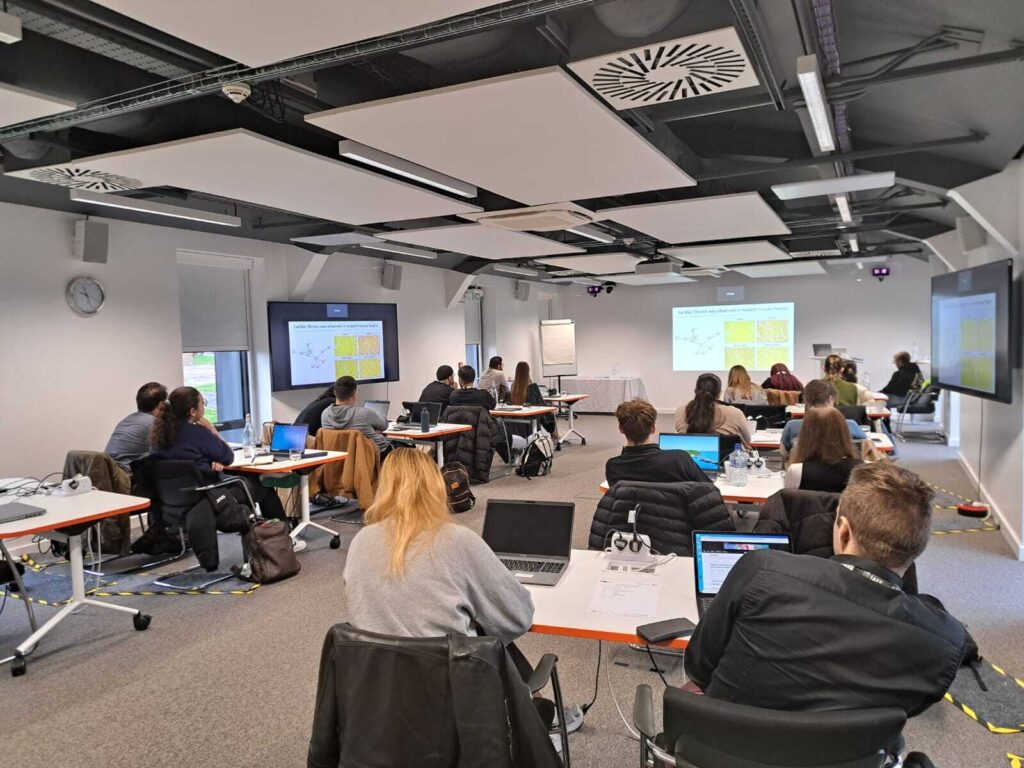Our mission to train the next generation of in vivo model scientists: an intensive week-long boot camp for Network PhD students and postdocs

One of the key elements of the MRC National Mouse Genetics Network (NMGN) mission is to share knowledge and resources and to train early career researchers (ECRs) to make sure they are able to carry out their in vivo work in the most scientifically rigorous way, applying the principles of the 3Rs and collecting meaningful and reproducible data.
Following a tested format established at the Advance Training Centre over the last couple of years, the NMGN organised a week-long residential boot camp for PhD students and junior postdocs whose work is focused on the use of mouse models to study human disease. The boot camp covered everything from the basic understanding of the different inbred mouse strains all the way to complex data analysis, with sections on pre-registration of in vivo experiments and public involvement requirements in grant applications. Training the future generations of scientists within the Network to apply the best principles and practices of in vivo experimental design and management falls within the Network’s aims and allows all clusters to tap into the world-leading expertise offered by the Mary Lyon Centre at MRC Harwell whilst encouraging the active exchange of their current extensive knowledge within their respective fields of research.
The intense programme started with an introduction to inbred mouse strains and the importance of genetic background on the expression of any phenotypes, followed by an introduction to PCR-based genotyping techniques, assay design and best practices to achieve consistent and reliable results.
The programme
The first day ended with a session on genetically altered (GA) models and strategies to generate them, with a practical workshop-style session at the end.
Apart from a talk by our generous sponsors Transnetyx, day two was entirely dedicated to the wonders of CRISPR and how it has revolutionised our ability to generate more clinically relevant models as well as very complex GA animals that can be used for a multitude of purposes.
Following on from this theme, day three was another full immersion day on conditional transgenesis and its many uses in preclinical research, with a final session on the complex combinatorial conditional models produced for the Network Clusters.


The following day focused on how we characterise our models, with a strong emphasis on experimental planning, as well as the design—and practical examples —of statistical analysis and an introduction to pre-registration of animal experiments. There was consideration of the MLC’s extensive phenotyping platforms, including home cage monitoring, used to catch the early onset of subtle phenotypes, and artificial intelligence-aided analysis of the resulting data. We then heard about microCT and the use of axenic mice for the study of the microbiome and other phenotypes linked to the specific microbial colonisation of the animals. A full day of theoretical and practical sessions to consolidate the learning so far.
The final day began with talks given by ECRs from the Network who described their projects and took questions from the boot camp delegates. This session was followed by a short presentation on the importance of public involvement in biomedical research projects and the new requirements brought in by funding bodies for grant applications.
The last two sessions were on the specific requirements of phenotyping pipelines for ageing cohorts and the breeding strategies applicable to various needs, as well as a reminder of the general take-home messages after a very intense week.
Relaxation and networking as well
There was time for some relaxation with an enjoyable course dinner that provided everyone with useful networking and good laughs.
We can safely say that the first boot camp was a resounding success and we will take feedback on board to make next year’s even better!